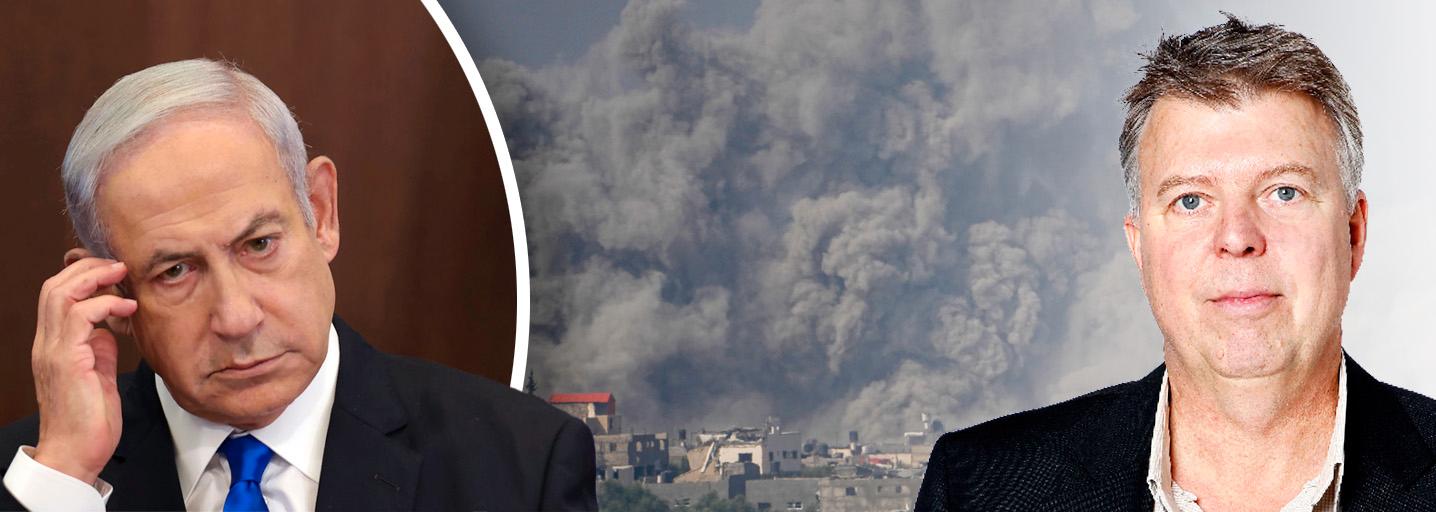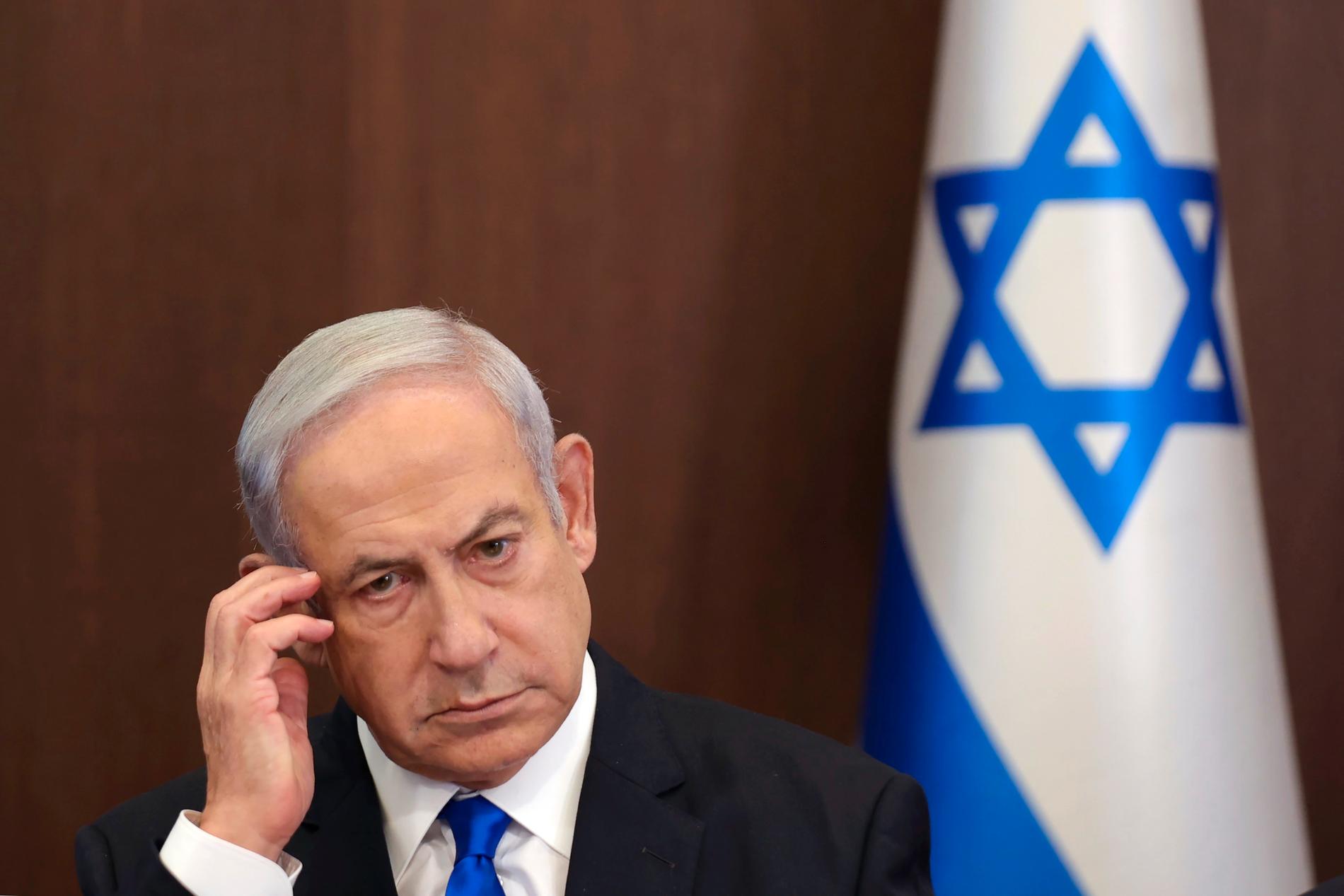Columnists
Gaza
Therefore, Israel's ground offensive is delayed
Wolfgang Hansson
This is a commenting text. Analysis and positions are the writer's.
Published 22.00
Israel threatens far and wide to "crush" and "wipe out" Hamas.
Nevertheless, the expected Israeli ground offensive against Gaza is delayed.
Why?
Many probably thought that an Israeli ground offensive would come very soon after Hamas slaughtered over a thousand Israeli civilians in southern Israel. Many of them women and children.
The heightened verbal threats from the Israeli military and Prime Minister Benjamin Netanyahu contributed to that conclusion.
The first few days it was said that the weather was too bad. The Israeli fighter pilots could not pinpoint bomb targets well enough. Probably just a fog curtain for what's going on behind the scenes.
Because while Israel continues to verbally threaten Hamas with annihilation, negotiations are underway to release some of the more than 200 Israelis that Hamas took hostage during its surprise attack on Israel two weeks ago.
Israel is being pressured from several quarters to make a greater effort to get the hostages out before going in with ground troops. On the one hand, it becomes more difficult to avoid the hostages being harmed in a ground war, and on the other hand, the risk of Hamas using the hostages as human shields increases.
The pressure comes both from the hostages' relatives who want their loved ones home, but also from a number of countries that also have citizens who have been taken by Hamas. Many Israelis have dual citizenship.
The two released on Friday were both US citizens, a mother and her daughter. Proof that Hamas is willing to negotiate.
Israeli Prime Minister Benjamin Netanyahu. Photo: Abir Sultan / AP
Suitcases with bundles of dollars
There are also a large number of American citizens among the hostages as well as people from France, Germany and Great Britain.
Countries putting pressure on Israel to try to free the hostages before a ground offensive starts.
The negotiations were handled by, among others, Qatar, an ally of Hamas which over the years provided the group with suitcases containing bundles of dollars. The US also has good contacts with Qatar and thus has direct insight into the negotiations.
Israel is using the two million Palestinians in Gaza as a sort of hostage. Israel has stopped all supplies to Gaza, including food, fuel and medicine. The water supply has also been shut off.
Israel is prepared to allow humanitarian aid to Gaza if Hamas releases more hostages. Over the weekend, only 34 trucks entered Gaza from Egypt. It is a drop in the ocean against the enormous needs that exist when almost half of Gaza's population have become refugees in their own country due to Israel's call for everyone to move to southern Gaza.
But the hostages are not the whole explanation for the delay in the ground offensive.
Fear has grown in both Israel and the United States that a ground offensive risks opening a second front in the war. Therefore, the US wants to provide Israel with more weapons before the war starts in earnest. 62 transport planes with equipment have landed in Israel.
Deter Iran
It is feared that Hizbollah in Libanon, a militia supported by Iran, will launch a massive attack on Israel if they enter Gaza. Militarily, Hezbollah was a greater threat than Hamas.
But President Joe Biden also wants to get more US military assets in place to deter Iran and possibly others from getting involved in the war. One of the two aircraft carriers in the Eastern Mediterranean is about to be moved to the Persian Gulf.
Already, US bases in Iraq and Syria have come under drone attacks from militia groups backed by Iran. A US warship over the weekend returned fire at robots fired from the Houthi rebels' enclave in Yemen at Israel.
The US has wholeheartedly supported Israel, but Joe Biden has at the same time emphasized that Israel must follow the laws of war and protect the civilian population in Gaza to the best of its ability.
Therefore, the Israeli military has again dropped leaflets from the air urging the civilian population remaining in northern Gaza to head south. Israel estimates that around 300,000 remain in northern Gaza, where Hamas has its military headquarters and the tunnels where weapons and personnel are hidden.
The fewer civilians left, the harder the Israeli forces can advance.
Israeli media reports that the IDF wants to raze all the buildings in its path to the ground because they could be hiding places for snipers.
It will probably take at least a few more days before the ground offensive starts. On Tuesday, French President Macron arrives in Israel to, among other things, meet Netanyahu. It is not likely that Israel will launch an offensive at the same time that high dignitaries from the West are visiting.


Inga kommentarer:
Skicka en kommentar